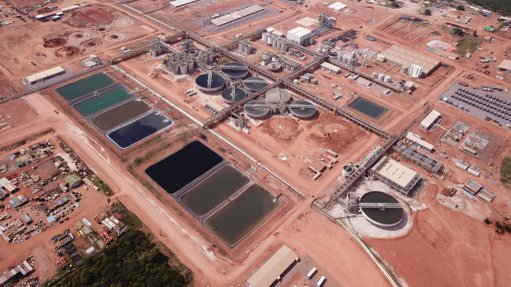
SUSTAINABILITY MATTERS Eurasian Resources Group’s goal is for its Metalkol Metalkol Roan Tailings Reclamation operation to become the foremost sustainable cobalt producer
As the research by the Global Battery Alliance (GBA) found, the demand for batteries is expected to increase 19 times by 2030, which constitutes one of the highest purchase orders the mining industry has seen to date.
Yet, GBA co-chair Benedikt Sobotka notes that there are several social, environmental and integrity risks inherent to the battery value chain.
“For example, the Democratic Republic of Congo (DRC) holds more than two-thirds of the world’s reserves of cobalt, a key battery metal, but some estimates suggest that as many as one-million children are affected by child labour in the DRC’s mining industry,” he adds.
It is, therefore, crucial that the expected increase in demand for cobalt and copper – driven by net-zero emissions commitments and a renewed focus on the digital economy – does not come at the expense of local communities, environments and ecosystems.
To this end, Sobotka stresses that cross-industry collaboration is needed to ensure that copper and cobalt supply is diversified through ethical sourcing and supply traceability.
This is one of the primary aims of the GBA, of which diversified resources producer Eurasian Resources Group (ERG) – which Sobotka also heads – is a founding member.
Hosted by the World Economic Forum (WEF), the GBA brings together about 70 members from across the public and private sectors, including automakers, suppliers, technology companies and national governments.
The GBA seeks to catalyse and scale up efforts to create a circular and socially responsible battery value chain, including the elimination of child labour, Sobotka tells Mining Weekly.
Further, at the WEF’s yearly meeting in Davos, Switzerland, earlier this year, after more than 12 months of intensive consultation with members, the concept of the Battery Passport for the cobalt sector was launched by the GBA.
The Passport, Sobotka explains, aims to unlock the full socioeconomic and environmental potential of batteries, in which cobalt is a principal commodity. The concept will work as a type of quality seal on a global digital life-cycle platform that shares batteries’ value chain data.
“The Passport, once launched, will assist in enabling the user to verify the battery’s material provenance, chemistry and identity, as well as in measuring the sustainability and environmental impact of the battery.”
In doing so, the Passport will, for example, enable end-users of everyday products, such as smartphones and electric vehicles, to ascertain that the cobalt in the battery has not, at any point, been connected with environmentally or socially unsound practices, including human rights issues, he says.
The “first-of-its-kind initiative” will be a monumental step in helping ensure that the increased demand for cobalt, and other battery materials, does not come at the expense of vulnerable local communities or the environment.
Other Strategic Partnerships
ERG is proud to be a member of the Cobalt Institute (CI), a nonprofit trade association that promotes the sustainable and responsible production and use of cobalt in all its forms.
Comprising cobalt producers, users, recyclers and traders, the institute represents about 70% of cobalt produced worldwide and has more than 60 years of experience in identifying and addressing issues of key interest for the cobalt sector.
“ERG’s Metalkol Roan Tailings Reclamation (RTR) operation, in Lualaba province, about 26 km west of Kolwezi, is set to place the company as one of the most prominent producers of cobalt globally, and for the company, it is key to ensure that cobalt is produced sustainably and responsibly while addressing the risks associated with unethical business practices, particularly child labour,” Sobotka emphasises.
ERG has adopted the CI’s Cobalt Industry Responsible Assessment Framework, which is a management and reporting tool that further enables participants to strengthen their ability to assess, mitigate and report on risks while aligning with global good practice on responsible production and public reporting.
This framework, Sobotka concludes, is in line with ERG’s goal for Metalkol RTR to become the foremost sustainable cobalt producer, “helping to deliver prosperity for the communities in which we operate, for our sector in general, and for society at large”.